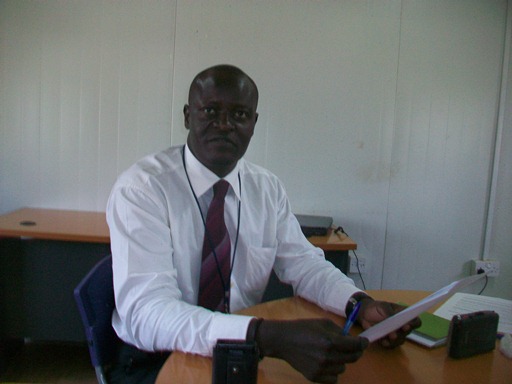Old people at risk of “chronic” non-communicable diseases: WHO
By Julius N. Uma
April 7, 2012 (JUBA) – The World Health Organization (WHO) has expressed concerned that the growing numbers of older people in the absence of proper health care systems in South Sudan poses a risk of increases in chronic non-communicable disease, like cancer, diabetes, stroke and heart attacks.

“What we need is a comprehensive, collaborative response to population ageing. We need to provide integrated health and social care, to enhance family and social support, and to reduce the burden of disease and disability,” said Mohammed.
On Saturday, newly independent South Sudan joins the rest of the world to commemorate World Health Day, an annual event that marks the founding anniversary of WHO in 1948. With a focus on ageing and health, this year’s theme is, “Good life adds life to years”.
Moses Ongom, a health systems development specialist at WHO says there is need for early detection and treatment through proper utilisation of the existing surveillance systems, due to high risks of non-communicable diseases especially among the elderly.
He said the population in South Sudan should, despite the tough austerity health budget, desist from unhealthy practices such as alcoholism, smoking, and unbalanced diets, which are widely viewed as causes for such diseases.
Over the past few years, WHO says, the gobal population, including those living in South Sudan, has registered remarkable “demographic transition” from high birth and death rates to lower birth and death rates, with increased life expectancy.
As such, it adds, the number of older people is increasing worldwide. The number of old people in South Sudan is also anticipated to continue rising rapidly in the next decade. This trend, WHO argues, could have major implications for health and socio-economic development in the world newest nation.
WHO’s head of office said that “population ageing and delivery of health care services to the elderly will present new and serious challenges for national health care systems in South Sudan”.
Mohammed urged government and all stakeholders to focus on promotion of good health and healthy behaviours, minimise the consequences of chronic diseases through early detection and quality care, create physical and social environments that foster the health and effective participation of older people and “reinvent ageing” through change of social attitudes in societies.
Meanwhile, as the organisation marks World Health Day on Saturday, it appealed to the media fraternity to join the campaign by widely disseminating information, creating awareness on the dangers posed by non-communicable diseases globally.
(ST)
